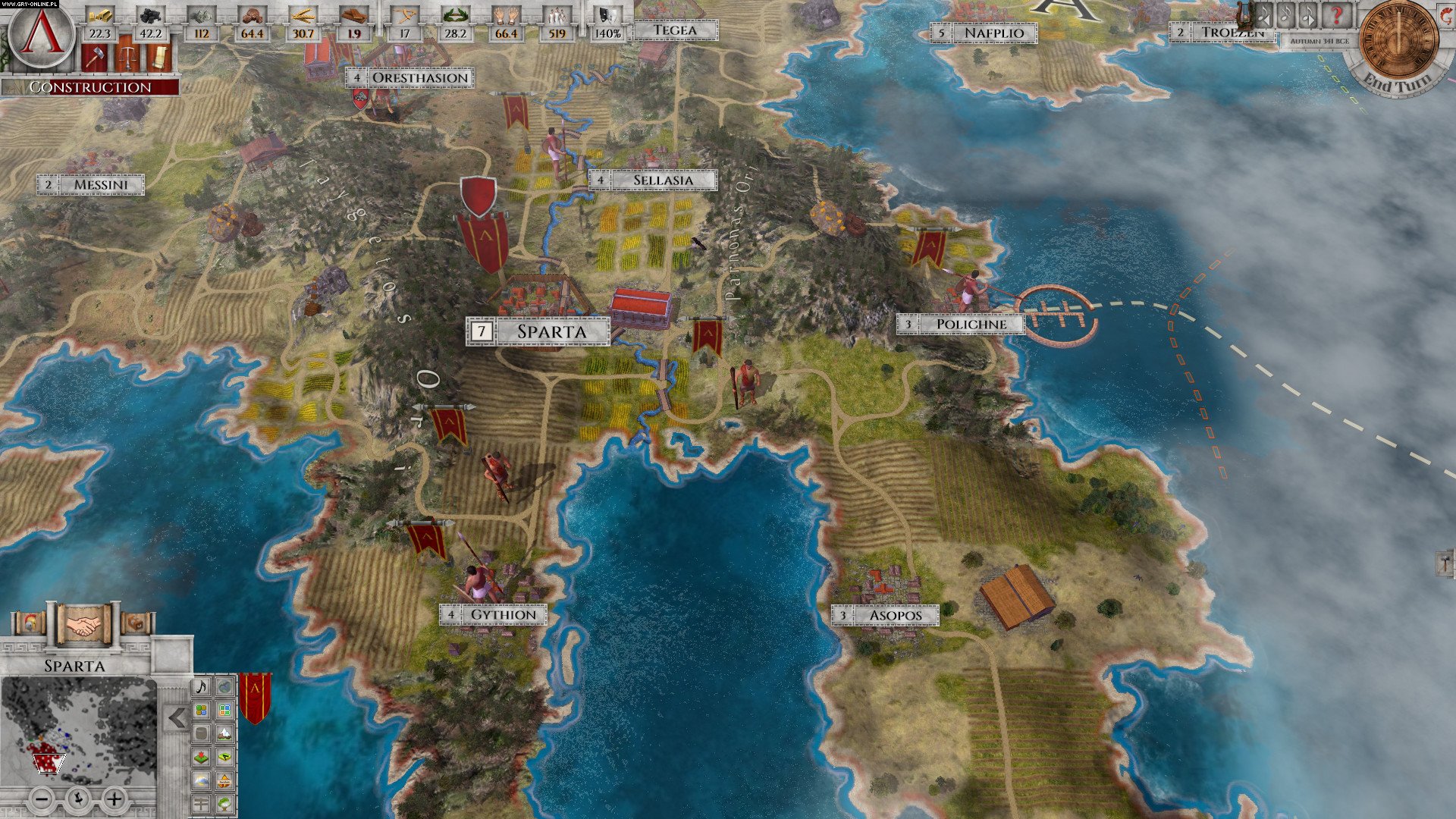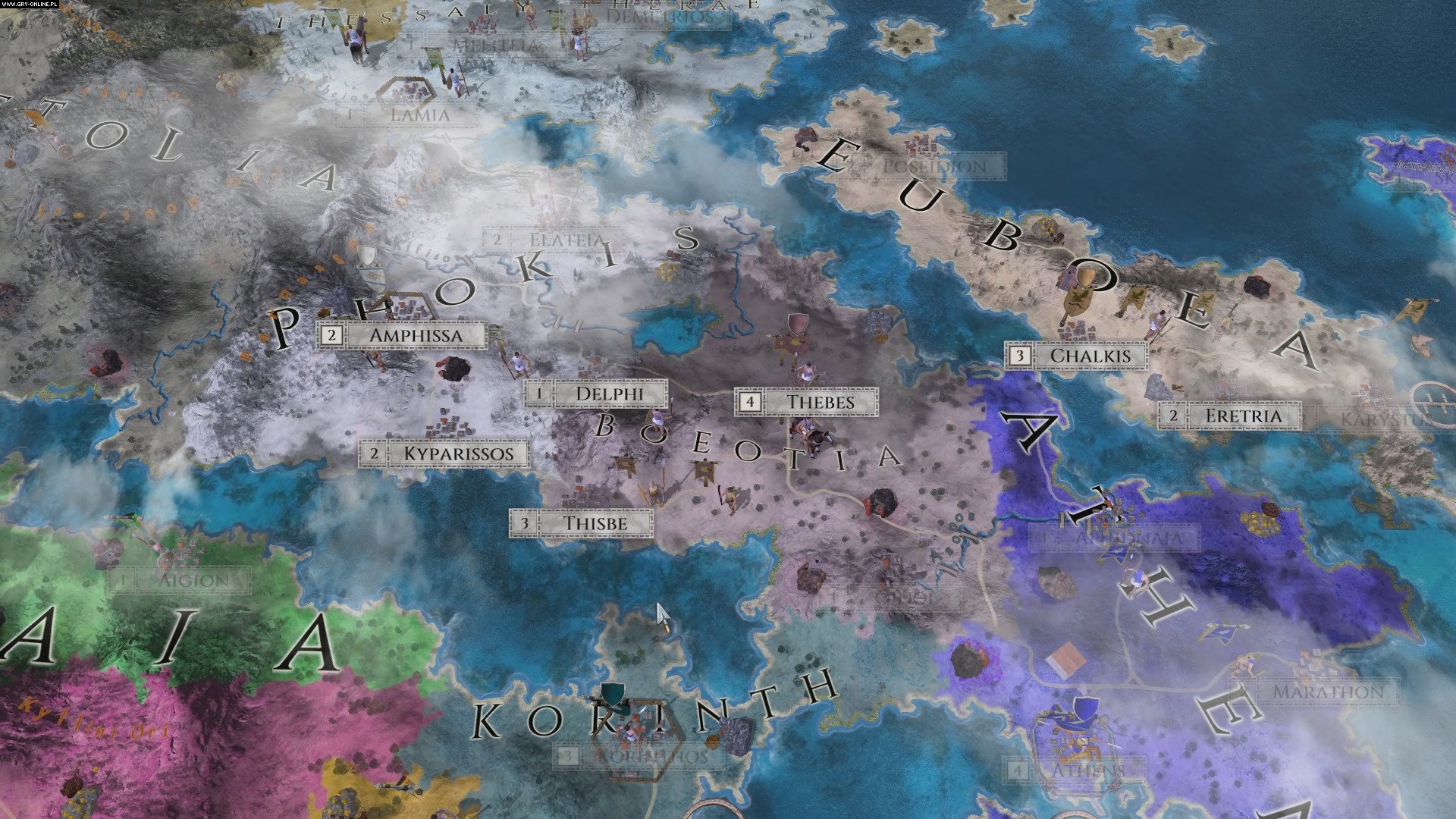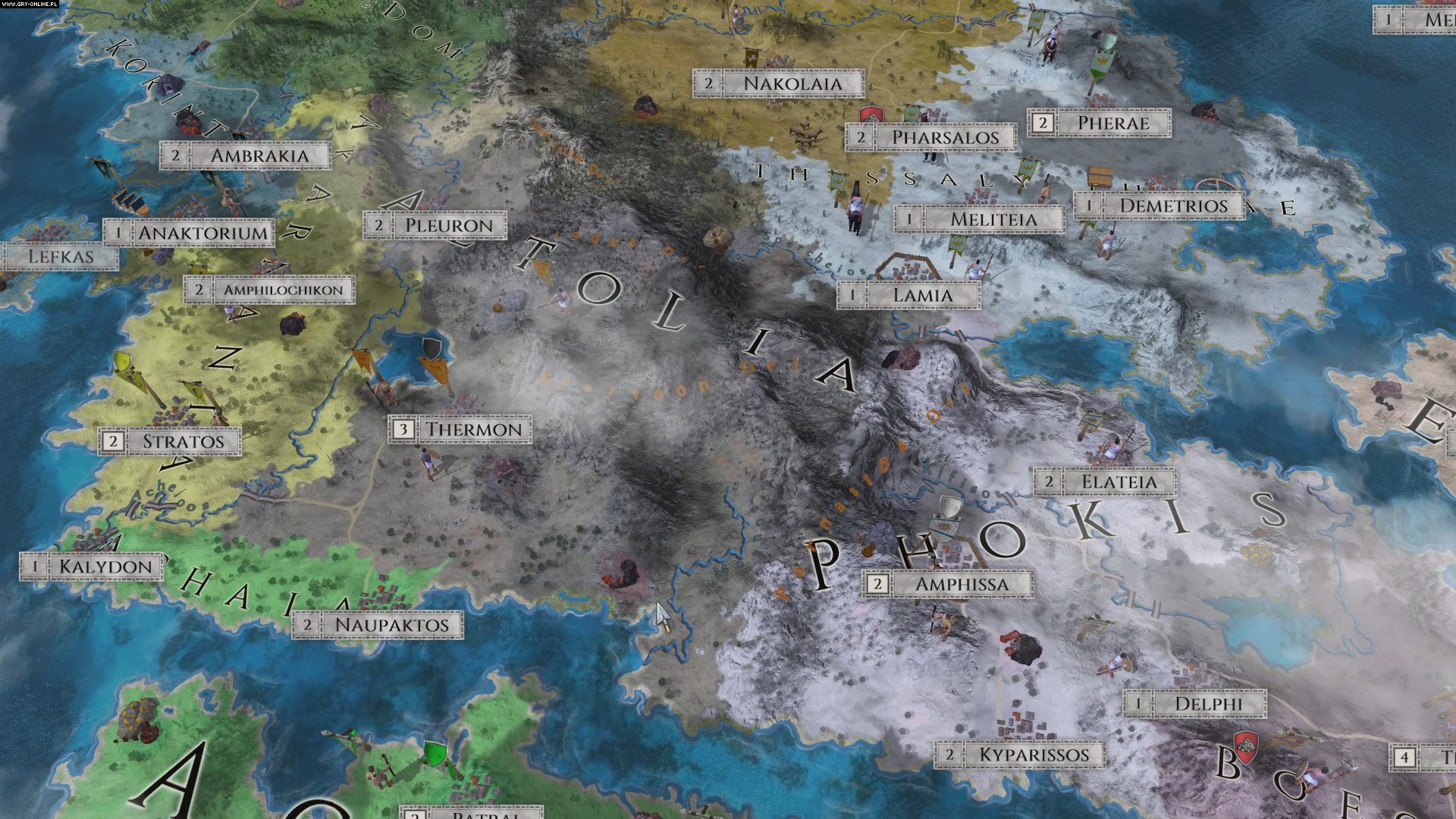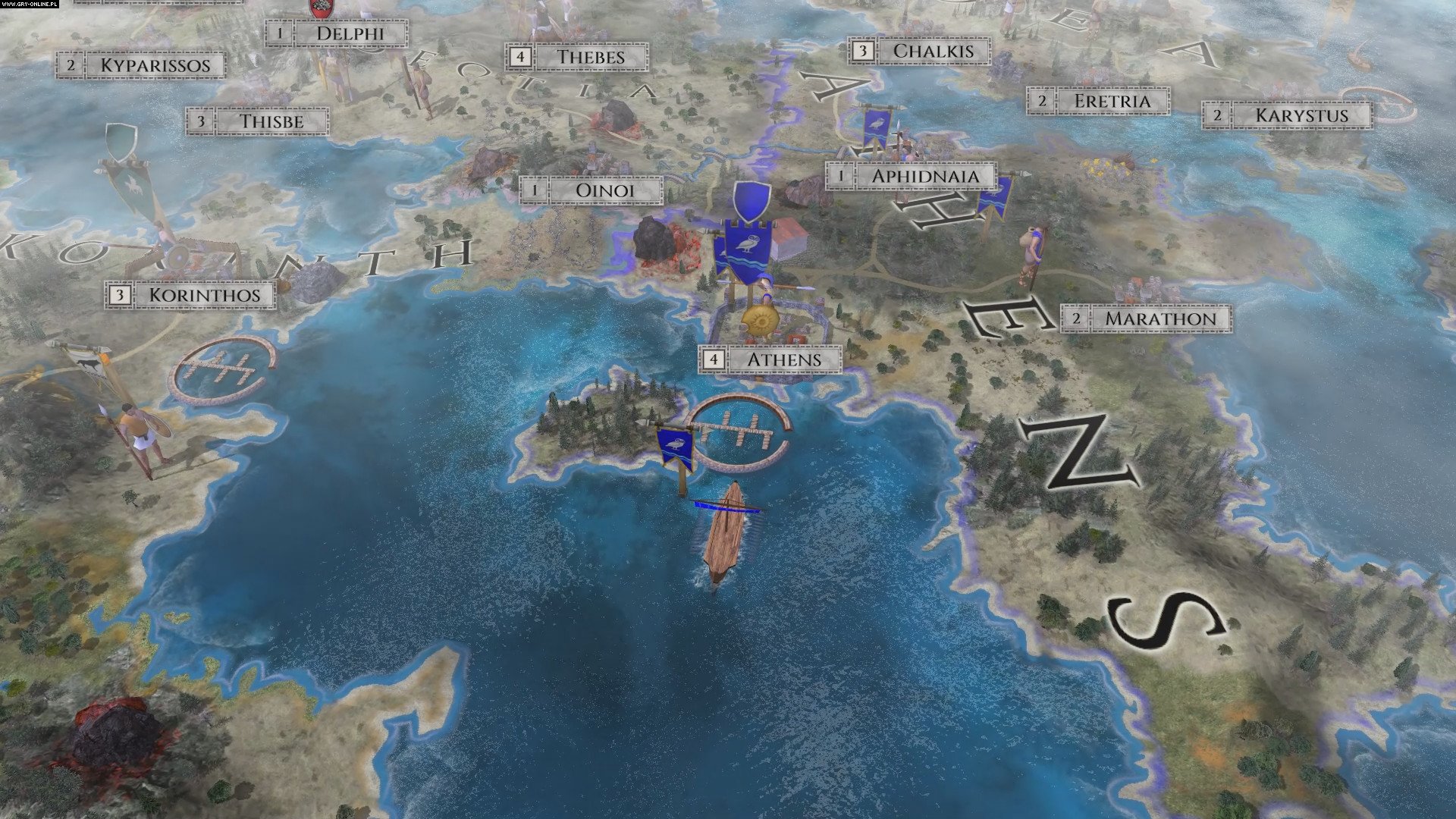There are two ways of playing the game: the first one is to move our forces around the campaign map, the second is to manage the country in special panels. We move our troops, workers and agents around the fields into which the game world is divided. The number of fields we cover in a given round is limited and is influenced by factors such as the number of troops or the terrain. On some of them we build new settlements, which we give our own names or choose the one proposed by the game. We can only enter the fields occupied by other factions if we first get the right influence in them (e.g. by setting up soldiers in the fields nearby) or when we declare war on a faction. We observe the clashes on the campaign map, and their outcome is determined by the type and size of the army, the terrain and the capabilities of the commanders.
During the campaign we have to make various decisions about the functioning of our empire. They are divided into 6 categories, relating to military action, economic and political development, etc. When choosing one of our settlements, we also decide what building we want to construct in it. Each provides specific bonuses and gives new tactical options. During the game, we also regularly receive new goals to meet, concerning some of the aspects mentioned above. So it can be an order to get a designated settlement, achieve an appropriate economic level or get rid of a political rival.
There are also mythological elements in the Imperiums. In some parts of the world there are places that refer to Greek myths, and visiting them or performing any other activity specified by the game will bring us additional bonuses.
Game modes
In addition to single player gameplay, Imperiums: Greek Wars offers multiplayer mode. It allows you to compete with other players over the Internet or work with them to achieve the goals of individual campaigns.
Technical aspects
Due to the type of gameplay and the small production budget, the graphic design of the game does not focus on realism, but presents everything in a conventional, drawing-like manner, slightly resembling the Europa Universalis series.

![[2:27] launch trailer](https://cdn.gracza.pl/galeria/filmy/640x360/33550484.jpg)






